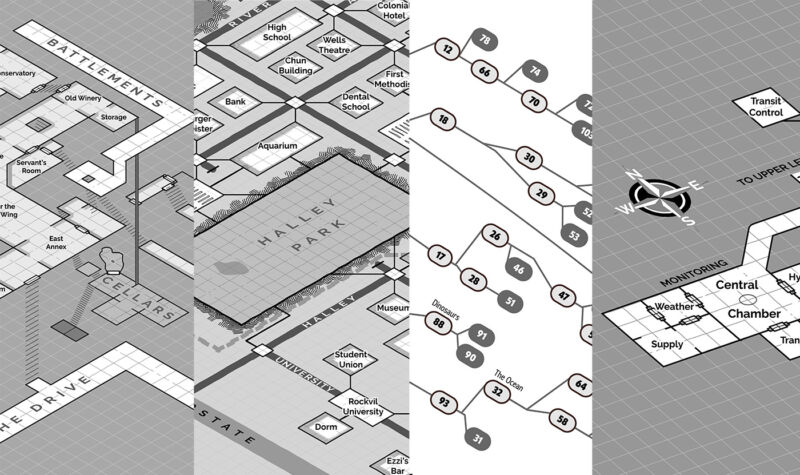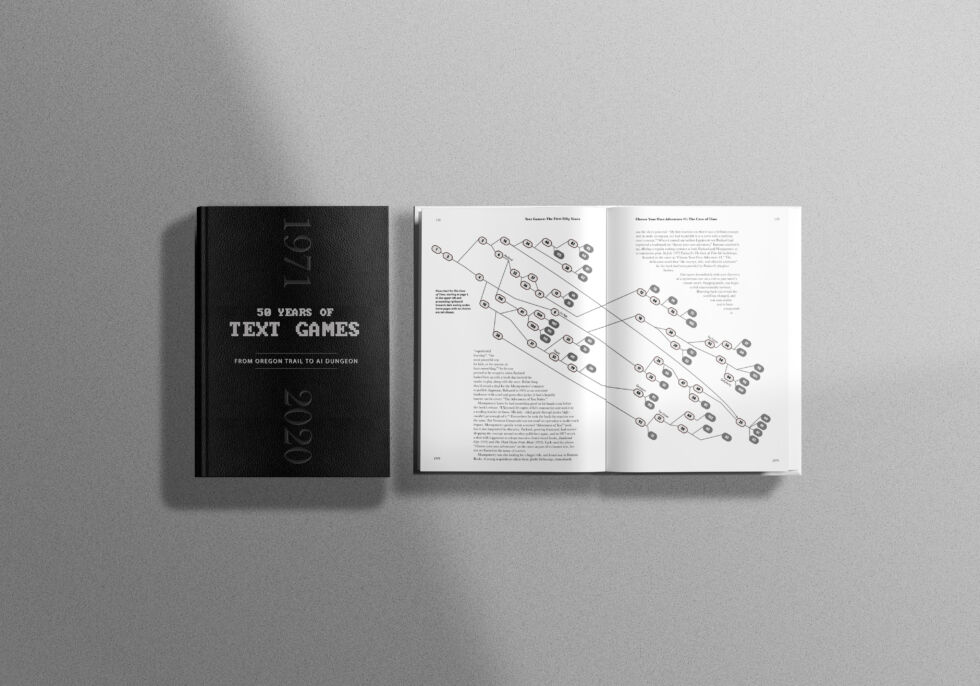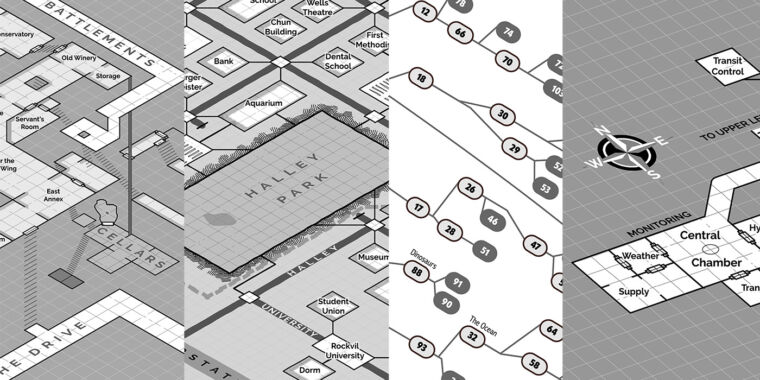
Aaron Reed
There is a quote in it 50 years of text games from Dave Lebling, co-creator of zorkthat’s been rattling around in my head ever since I read the book, popping to the surface every now and then like an M&M in trail mix.
“Obviously, no small computer program can encompass the entire universe. What it can do is simulate enough of the universe to appear more intelligent than it actually is.”
Lebling’s quote comes first in a chapter on The Oregon Route. Even by today’s standards, the degree to which that 1971 classic simulates the arbitrariness of reality and invites you into its simulation is impressive. When you inevitably die, it asks you about “some formalities we need to go through”, and accepts Y/N for each.
- “Do you want a minister?”
- “Do you want a fancy funeral?”
- “Do you want us to inform your next of kin?”
The game follows with a quirky, morbid retort: ”Your Aunt Nellie in St. Louis would like to hear.” Author Aaron Reed notes that, “while the game does nothing with the answers, the mere fact of be asked makes you feel part of the story being told. It was a trick that would work through half a century of computer games and beyond.”

Aaron Reed
Reed’s book – with over 620 pages of analysis, code samples, photos, maps, flowcharts, footnotes, asides, cross-references, and other details – thoroughly supports this claim. Text games, both in their earliest parser form and in more modern incarnations, are a fascinating space in which humans have achieved amazing feats, and innovations continue today. Many of the earliest text games mastered key aspects of world building, story shaping, and player choice that some modern games, with exponentially more resources at their disposal, still struggle with.
Reed, a writer and game designer himself, chooses one game for each year from 1971 through 2020. He adds an engaging dive into the pre-1970s history of experimentation, games, and ruthlessly ruthless code. Each decade also gets its own introduction and summaries of 500 other text games are included. Each of the game picks began as a post on its Substack, though they’ve been revised and integrated more deeply with their historical context in the book.
There are classics you would expect such as Adventure, MUD, hitchhiker guide, And Trade wars. There are definition-stretching inclusions, like the original Choose your own adventure book, The cave of timeAnd Dwarf Fortress. And there are probably at least 20 games that most of us have never encountered.
Reed was generous enough to answer some questions I had via email. At the time of writing, there are still a few Collector’s Editions with a bonus book for sale, and hardcovers were moving quickly. Physical copies should ship by the end of June, and a digital version is available in PDF, reflowable epub, plain text, and at itch.io.
Ars: You wrote that at the end of 2019 you weren’t sure you could pull off a project of this magnitude, but the chance to go deep into each of these games and stitch them together kept you going. Was it still quite intimidating? 50 years? Some highly regarded titles that may have already felt completely mined?
reed: It was definitely intimidating for those reasons and more: from games like zork or Oregon trail, where I had to wonder if there was anything new to say about them, to the incredible challenge of writing 50 well-researched pieces of insightful commentary in a relatively short period of time. I think the saving grace was that there turned out to be a fascinating story behind every game. I’ve never been handed a game that I felt “stuck on” and had no say in it.

